
The beekeeping journey of the Van Zyls, who farm fruit, wine grapes and honey at Redbeard farm near Ashton in the Western Cape, started out as a holiday activity more than 30 years ago.
Albertus van Zyl, who was only nine years old at the time, suspects that his father, Louré, might have been rather bored while they were on a family holiday at Mossel Bay. So the two ended up helping the late Hannes Londt, a missionary who kept bees on his son’s farm near Gouritz, harvest honey.
The excursion turned into an annual ritual, and some years later Londt gave them 10 hives to start their own beekeeping operation on Redbeard farm.
“Hannes had over 50 years’ beekeeping experience, so we learnt everything we needed to be successful beekeepers from him,” says Van Zyl.
Their beekeeping enterprise gradually increased in size, reaching a maximum of 50 hives yielding about 1t of honey a year. Unfortunately, drought conditions in recent years reduced the availablity of forage for the bees, and in 2018 the Van Zyls were forced to downscale to just 20 hives.
Conditions have been more favourable this year, however, and they managed to harvest 300kg of honey in two weeks in October, equalling the entire harvest of 2019!
“The farm has about 20ha under irrigation, with the rest of our land spanning the Langeberg Mountains. Hannes calculated that we could keep up to 100 hives, but I think that would be pushing it, as the absence of access roads makes it difficult to move and work hives in these fynbos-covered mountains,” says Van Zyl.
This story is from the November 13, 2020 edition of Farmer's Weekly.
Start your 7-day Magzter GOLD free trial to access thousands of curated premium stories, and 8,500+ magazines and newspapers.
Already a subscriber ? Sign In
This story is from the November 13, 2020 edition of Farmer's Weekly.
Start your 7-day Magzter GOLD free trial to access thousands of curated premium stories, and 8,500+ magazines and newspapers.
Already a subscriber? Sign In
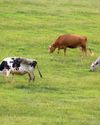
Africa goes from net carbon sink to source
New research shows Africa's impact on greenhouse gases and the need to focus on climate-smart agriculture
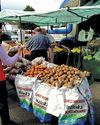
Ireland potato farmers unable to complete planting
Irish potato farmers have reported a delay in harvest and said that the UK might have to prepare for shortages of the produce. The shortfall is due to extreme wet weather during their planting season.
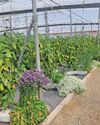
Zero-residue fresh produce a reality
Retail giants are calling for caution when using biologicals and chemical pesticides,

Big boost for mohair producers in Eastern Cape
A collaboration between the Eastern Cape Development Corporation (ECDC) and the Mohair Empowerment Trust (MET) has resulted in a R1,4 million injection into four emerging Angora goat farming operations in the Eastern Cape.
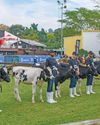
KZN Youth Show at Roval Agricultural Exhibition
The KZN Youth Show will run from Friday, 24 May to Sunday, 26 May at the Royal Showgrounds in Pietermaritzburg.
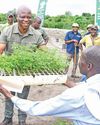
Hemp permits and irrigation system handed over
In an effort to fast-track the entry of rural farmers into the cannabis and hemp industries, KwaZuluNatal Minister for Agriculture and Rural Development, Super Zuma, visited the Shukasibheme Project in Mbazwana, a co-operative in Mseleni, uMhlabuyalingana in the Umkhanyakude District, to hand over cannabis and hemp permits as well as a borehole and irrigation system.

Meet some of the heroes behind avitourism destinations
Exploring what the Garden Route offers birdwatchers, Brian Berkman discovers some special people who run hospitable places to meet and see a variety of species.
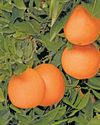
What the Citrus Academy offers aspiring producers
Cobus du Plessis takes a look at the Citrus Growers' Association of Southern Africa's Citrus Academy and how it is helping to develop aspiring farmers in the sector.
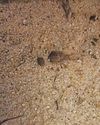
Natural-born killers of the insect world
The Myrmeleontidae family of lacewings from the Neuroptera order of insects consists of about 2 000 species of which 125 are found in South Africa.
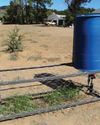
Seeder kick-starts vegetation in challenging environments
Dr George Craven of Noorspoort, Steytlerville, in the south-eastern Karoo, is successfully using a home-built 'bedstead seeder' to re-establish veld plants in an arid area, writes Roelof Bezuidenhout.